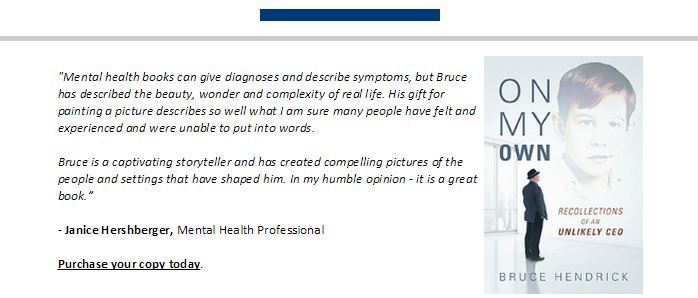Describe Your Kansas
Escaping Oz
Dorothy was shocked when Glinda the Good Witch of the North told her that she “always had the power” to go back to Kansas. Scarecrow asked why Dorothy had not been told this before. “Because she would not have believed me; she had to learn it for herself.” Which pretty much sums up my life and career.
Like Dorothy, I’m compelled to try things my own way before I surrender to the counsel of others. One of these hard lessons was the need for a company Vision. What pain and strife I could’ve saved myself and my coworkers! If only!
I often say that it is vital for any business to create a strong separation from its competitors via a crystal clear Mission. But a good Mission can’t do all the heavy lifting; a Vision is also required.
Let’s not spend the time to describe the process for writing a business Vision. Any search on vision will provide the detail you need on how to write one. The “How” is not really the problem anyway, is it? It’s the “Why.” And the “do I have to?”
In 30 years of doing business I’ve learned:
- Most leaders already carry in their heads some kind of vision or prediction of the future. It may not be written, but it is there. It’s what fires them up, fuels them to face daily risks, and signals them when the company is off track.
- Employees cannot read the minds of their leaders.
- When employees don’t have an official company vision, they make up their own.
- These competing visions are reasonable but they’re often based on bad, outdated, or individualized assumptions.
- Leaders spend a great deal of their time correcting erroneous decisions or behaviors.
The absence of a galvanizing vision causes our people to take the company in their own preferred direction; we get a perpetual tug-of-war and a cauldron of mistrust.
Ruby Slippers
I recommend the simple yet powerful visioning process used by the smart people at Zingerman’s. According to Zingerman’s, all good visions are:
- Inspiring: Others are excited about the vision and want to go there.
- Strategically sound: It might be a stretch, but it is do-able.
- Documented: It’s in writing.
- Communicated: Everyone knows about it.
- Now that we know the why and the how, we gotta somehow overcome our reluctance to commit our vision to paper.
Here are some of the excuses I’ve seen (and used) over the years, along with suggestions on how to overcome them.
But I’m a lousy writer. Instead of writing, ask someone to record and transcribe a vision-describing conversation with you.
What if my best people don’t agree with the Vision? Then they are already working against it. You’d better hurry!
But I don’t want to choose one future over another. I’m best at rolling with the punches. Choose a healthy, vibrant future that is true to your values but still gives you some wiggle room.
Okay but what if I’m wrong? At least you and your team are now building toward a positive, specific future instead of settling for whatever life throws at you. Or doesn’t.
But I don’t want to be held accountable for what I write down! This is the price you pay, but in the end it is much cheaper than the costs and lost opportunities described above.
My company’s world is small batch electronics. Maybe your world is academia, accounting, or a doctor’s office. You need a Vision as much as we do. Where is your store, practice or office headed? What will it look like in ten years? How will its personality evolve over time? What demons are you fighting now that must be slain if you are to survive?
Describe your Kansas now and you will find, as we have, that you’ve had the power to get there all along!
Image Source: Google images




